Home> Company News> Different Types of Hydraulic Compensators and Their Applications
- AddressToh Guan Centre, 31/F,69 Toh Guan Rd E, Singapore 608609
- Factory AddressToh Guan Centre, 31/F,69 Toh Guan Rd E, Singapore 608609
- Worktime9:00-18:00
- Phone(Working Time)0065-31591578
- Phone(Nonworking Time)0065-31591578
- Fax0065-31591339
Different Types of Hydraulic Compensators and Their Applications
2023-04-25 14:42:24Hydraulic systems are a crucial component in many industrial applications, allowing for the efficient transfer of power through the use of pressurized fluids. Hydraulic compensators play an important role in ensuring optimal system performance and efficiency. In this article, we will discuss the different types of hydraulic compensators, their functions, and their applications in various industries.
Pressure compensators
Pressure compensators are an essential component of hydraulic systems, ensuring that the system operates efficiently and safely. These devices regulate the pressure within a hydraulic system, compensating for variations in the load and demand placed on the system.
Pressure compensators are available in three types: fixed, adjustable, and variable. Fixed pressure compensators maintain a fixed pressure in the hydraulic system, while adjustable pressure compensators allow the pressure to be adjusted within a specified range. Variable pressure compensators adjust the pressure automatically in response to changes in the load on the system.
Pressure compensators are commonly used in applications where the load on the hydraulic system is variable, such as in construction equipment and agricultural machinery. By maintaining a constant pressure within the system, pressure compensators help to prevent damage to hydraulic components and reduce the risk of system failure.
 hydraulic compensator
hydraulic compensator
In addition to their use in industrial applications, pressure compensators are also found in consumer products such as automobiles, where they are used to maintain a constant pressure within the braking system. This helps to ensure consistent braking performance, regardless of the load on the vehicle.
Overall, pressure compensators play a critical role in ensuring the safe and efficient operation of hydraulic systems. Understanding the different types of pressure compensators and their applications is essential for the proper functioning of hydraulic systems in a wide range of industries.
Flow compensators
Flow compensators are hydraulic components that regulate the flow rate of fluid in a hydraulic system. Flow compensators maintain a constant flow rate regardless of the system load and pressure changes. They are designed to ensure that the fluid flow rate stays at a predetermined level, regardless of the pressure or flow rate changes in the system.
There are three types of flow compensators: fixed, adjustable, and variable. Fixed flow compensators have a fixed orifice size, and the flow rate cannot be adjusted. Adjustable flow compensators have a valve that can be adjusted to vary the flow rate. Variable flow compensators use a spool valve that can be moved to adjust the flow rate. The spool valve varies the size of the orifice, allowing for the flow rate to be varied.
Flow compensators are used in a variety of applications, including industrial and mobile hydraulic systems. For example, they are commonly used in hydraulic motors to maintain a constant speed, even when the load changes. They are also used in hydraulic cylinders to maintain a constant speed during extension or retraction.
Flow compensators work by regulating the fluid flow through the hydraulic system. When the pressure in the system changes, the flow compensator adjusts the flow rate to maintain a constant flow rate. This allows the hydraulic system to operate more efficiently, reducing energy consumption and extending the life of the system.
One example of a flow compensator is the pressure compensated flow control valve. This valve uses a spool valve to regulate the flow rate, and a pressure compensator to maintain a constant pressure drop across the valve. The pressure compensator adjusts the valve opening to maintain a constant flow rate, even when the system pressure changes.
Overall, flow compensators are an important component of hydraulic systems, ensuring that the flow rate remains constant even when the system pressure changes. By maintaining a constant flow rate, hydraulic systems can operate more efficiently and effectively.
Load compensators
Load compensators are a type of hydraulic compensator that helps regulate the amount of pressure in a hydraulic system in response to changes in load. As loads vary, the hydraulic system needs to adjust the flow of fluid to maintain a consistent pressure. Load compensators can help ensure that the system maintains a stable pressure and prevents damage to system components.
There are several types of load compensators, including fixed, adjustable, and variable. Fixed load compensators are set to a specific pressure and cannot be adjusted, while adjustable load compensators can be manually adjusted to achieve the desired pressure. Variable load compensators automatically adjust the pressure in response to changes in load.
Load compensators are commonly used in applications such as cranes, presses, and other heavy machinery that require precise control over pressure to prevent damage to the equipment or materials being handled. They can also be used in hydraulic systems that have varying loads, such as those used in construction equipment or mining machinery.
When selecting a load compensator, it is important to consider factors such as the maximum load capacity of the system and the desired level of control over the pressure. Sizing the load compensator correctly is also critical to ensure that it can handle the load and maintain pressure control.
Proper maintenance is also important for load compensators to ensure optimal performance and prevent issues such as leaks or premature wear and tear. Regular inspection and testing can help identify any potential issues before they cause major problems.
Overall, load compensators are an essential component in many hydraulic systems and can help ensure safe and efficient operation of machinery and equipment.
Proportional compensators
Proportional compensators are a type of hydraulic compensator that operate based on a specific input signal, such as pressure, flow, or directional control. They adjust the output of the hydraulic system in proportion to the input signal, allowing for precise control of system parameters.
There are several types of proportional compensators, each designed for a specific application. Pressure compensators, for example, adjust the output pressure of the system in response to a change in the input pressure signal. This allows for precise control of system pressure, which is particularly useful in applications such as injection molding, where precise pressure control is necessary to produce consistent parts.
Flow compensators adjust the flow rate of the hydraulic fluid in response to a change in the input flow signal. This is useful in applications such as conveyor belts or assembly lines, where the flow rate needs to be adjusted to accommodate different production rates.
Directional compensators adjust the direction of fluid flow in response to a change in the input signal. This is particularly useful in applications such as excavators, where the direction of the hydraulic fluid needs to be controlled to move the machine in different directions.
Proportional compensators offer several benefits in hydraulic systems, including precise control of system parameters and improved efficiency. By adjusting the system output in proportion to the input signal, proportional compensators can reduce waste and improve system response times. They also allow for more precise control of system parameters, which can improve product quality and consistency.
However, there are also limitations to using proportional compensators. They can be more complex to install and maintain than other types of hydraulic compensators, and they may be more prone to leaks or other maintenance issues. Additionally, they may not be suitable for all applications, particularly those that do not require precise control of system parameters.
Overall, proportional compensators are a valuable tool in hydraulic systems, providing precise control of system parameters and improved efficiency. However, it is important to carefully consider the specific needs of the application and the limitations of the compensator when selecting and implementing one in a hydraulic system.
Benefits and limitations of hydraulic compensators
Hydraulic compensators offer numerous benefits when used in hydraulic systems, including increased efficiency, improved system response, and reduced wear and tear on components. By maintaining a constant pressure, flow rate, or load, hydraulic compensators can help prevent damage to the system, prolong the life of components, and reduce maintenance costs.
However, there are also some limitations to using hydraulic compensators. One potential issue is the possibility of leaks, which can occur if the compensator is not properly maintained or installed. Additionally, hydraulic compensators can be complex to install and maintain, requiring specialized knowledge and equipment.
Despite these limitations, hydraulic compensators remain a critical component in many hydraulic systems, particularly those used in industrial applications. By providing precise control over system pressure, flow rate, and load, hydraulic compensators help ensure optimal system performance and efficiency, making them a valuable tool for businesses and organizations across a range of industries.
In addition, the development of new technologies and materials is helping to make hydraulic compensators even more efficient and reliable. For example, advances in materials science have led to the development of stronger, more durable components, while improvements in electronics and sensing technologies are helping to make hydraulic systems more responsive and adaptable than ever before.
Overall, the benefits of hydraulic compensators are clear, and their importance in hydraulic systems cannot be overstated. As technology continues to evolve and new innovations are introduced, it is likely that hydraulic compensators will only become more critical to the success and efficiency of hydraulic systems in a variety of industries.

hydraulic compensator
Hydraulic compensators play a crucial role in hydraulic systems, providing a means of maintaining constant pressure, flow, or load in the system. While they offer several benefits, such as improved system efficiency and reduced component wear and tear, they also have their limitations, such as potential for leaks and the complexity of installation and maintenance.
One of the main benefits of hydraulic compensators is their ability to improve system response and accuracy, particularly in applications where precision is crucial. They also allow for more efficient use of energy, which can result in cost savings over time. Additionally, hydraulic compensators help to reduce wear and tear on components, which can prolong the lifespan of the system and reduce maintenance costs.
However, hydraulic compensators also have their limitations. One potential issue is the potential for leaks, particularly in older or poorly maintained systems. They can also be complex to install and maintain, requiring specialized knowledge and equipment to ensure optimal performance. Additionally, if not properly sized or adjusted, compensators can lead to issues such as cavitation or system instability.
Despite their limitations, hydraulic compensators are an essential component in many hydraulic systems and provide several benefits that cannot be achieved through other means. Proper installation, sizing, and maintenance can help to ensure that compensators operate efficiently and effectively, providing reliable performance over the lifespan of the system.
In conclusion, understanding the function and limitations of hydraulic compensators is crucial for ensuring optimal performance and longevity in hydraulic systems. With proper installation, sizing, and maintenance, hydraulic compensators can provide several benefits that help to improve system efficiency and reduce maintenance costs.
Mud pump bearings Turntable bearings Agricultural bearings Angular Contact Bearings Duplex Angular Contact Bearings Industrial bearings Iron and steel industry bearings Power transmission bearing Hydrostatic centripetal bearing Ball Thrust Bearings Papermaking Machinery bearings Agricultural machinery bearing McGILL bearing Rexroth pump assay Komatsu motor parts BOSCH Fuel injector Hitachi excavator parts Axial Piston Pumps Sauer Danfoss pump Eaton pump parts Nachi pump assay Linde pump Mining Construction Ball Bearings Linear Bearings vane pumps gear pumps inc piston pumps Thin-Section Ball Bearings Adapter Sleeves pressure valves gear reducer relief valves Mcgill Bearing Die & Mold Plain-Bearing Bushings FAG Bearing Singapore SKF bearing Accessories SKF bearing Housing SKF bearing shaft seals SKF Bearing units Bearing Distributors Inventory Oilfield mud pump bearings Heavy-Duty Shaker Screen Spherical Double row double row tapered roller bearings (inch series) Multi-Row Roller Bearings NTN Four Row Cylindrical Roller Bearings NTN SL Type Cylindrical Roller Bearings NTN SL Type Cylindrical Roller Bearings for Sheaves NTN Single Row Tapered Roller Bearings NTN Double Row Tapered Roller Bearings NTN Four Row Tapered Roller Bearings NTN Spherical Roller Bearings NTN Thrust Bearings NTN Bearings for special applications NTN DOUBLE-ROW CYLINDRICAL ROLLER BEARINGS NSK FULL-COMPLEMENT CYLINDRICAL ROLLER BEARINGS NSK SINGLE-ROW TAPERED ROLLER BEARINGS NSK YUKEN Piston pump DOUBLE-ROW TAPERED ROLLER BEARINGS NSK SPHERICAL ROLLER BEARINGS NSK SINGLE-DIRECTION THRUST BALL BEARINGS NSK CYLINDRICAL ROLLER THRUST BEARINGS NSK TAPERED ROLLER THRUST BEARINGS NSK SPHERICAL THRUST ROLLER BEARINGS NSK ROLLING BEARINGS FOR STEEL MILLS NSK SEALED-CLEAN FOUR-ROW TAPERED ROLLER BEARINGS NSK FOUR-ROW CYLINDRICAL ROLLER BEARINGS NSK DOUBLE-ROW TAPERED ROLLER BEARINGS NSK Roll Bearings for Mills NSK Ball Bearings NSK TAPERED ROLLER THRUST BEARINGS For Adjusting Screws NSK Thin Section Bearings Kaydon Double row double row tapered roller bearings (inch series) Double direction thrust tapered roller bearings Full complement Tapered roller Thrust bearing Thrust cylindrical roller bearings Thrust spherical roller bearings Sealed Four Row Tapered Roller Bearings Four row tapered roller bearings Double outer double row tapered roller bearings TDO double-row tapered roller bearings Single row tapered roller bearings inch Double inner double row tapered roller bearings TDI Double inner double row tapered roller bearings inch Spherical roller bearing Four row cylindrical roller bearings Single row cylindrical roller bearings Full row of cylindrical roller bearings Double row cylindrical roller bearings Double row full complement cylindrical roller bearings Four point contact ball bearings Double row angular contact ball bearings Deep groove ball bearings ANGULAR CONTACT THRUST BALL BEARINGS TYPE TVL DTVL angular contact thrust ball bearing. TP thrust cylindrical roller bearing TPS thrust cylindrical roller bearing THRUST SPHERICAL ROLLER BEARINGS TYPES TSR-EJ AND TSR-EM TTHD THRUST TAPERED ROLLER BEARINGS TTHDFL thrust tapered roller bearing TTHDFLSA THRUST TAPERED ROLLER BEARINGS THRUST TAPERED ROLLER BEARINGS TYPES TTSP, TTSPS AND TTSPL THRUST TAPERED ROLLER BEARINGS – TYPES TTC, TTCS AND TTCL SCREWDOWN BEARINGS – TYPES TTHDSX/SV AND TTHDFLSX/SV THRUST TAPERED ROLLER BEARING TYPES TTDWK AND TTDFLK CROSSED ROLLER BEARINGS TXR Tapered Roller bearings double-row • Type TDO Tapered Roller bearings double-row TDI TDIT Tapered Roller Bearings double-row TNA Tapered Roller Bearings double-row TNASWE Tapered Roller Bearings double-row Spacer assemblies TTVS TTSP TTC TTCS TTCL tapered roller thrust BEARINGS Heavy-Duty Shaker Screen Spherical Roller Bearings Timken SPHERICAL ROLLER BEARINGS CYLINDRICAL ROLLER BEARINGS ONE-ROW METRIC ISO SERIES CYLINDRICAL ROLLER BEARINGS one-row STANDARD SERIES CYLINDRICAL ROLLER BEARINGS FULL-COMPLEMENT NCF CYLINDRICAL ROLLER BEARINGS TWO-Row Four-Row Cylindrical Roller Bearings CYLINDRICAL ROLLER BEARINGS HJ SERIES CYLINDRICAL ROLLER BEARINGS 5200 A5200 metric series HeavY-duty needle roller bearings four-row cylindrical roller Bearing assembly four-row cylindrical roller Bearing inner ring Outer assembly four-row tapered roller Bearings • tQow – 2tdiw Timken Sealed roll neck Bearings four-row tapErEd rollEr BEaringS tQitS TnasWH TWo-roW TaPered roller bearings TdiT TnaT two-row tapErEd rollEr BEaringS tdik THrusT TaPered roller bearings TTdFlk, TTdW and TTdk bearings screwdown systems thrust tapered rollEr Bearings Thrust spherical roller bearing Mud pump bearings TOKYO-KEIKI piston pump TOKYO-KEIKI vane pump DAIKIN piston pump DAIKIN vane pump DAIKIN Rotor pump VICKERS Piston pump Vickers vane pump VICKERS gear pump NACHI gear pump NACHI piston pump Rexroth A1VO Rexroth A10VSO Rexroth AA4VSO Rexroth A15VSO Rexroth AZPF parker PV piston pump parker PVP piston pump parker PAVC piston pump parker vane pump Multi-Row Roller Bearings NTN Four Row Cylindrical Roller Bearings NTN SL Type Cylindrical Roller Bearings NTN SL Type Cylindrical Roller Bearings for Sheaves NTN Single Row Tapered Roller Bearings NTN Double Row Tapered Roller Bearings NTN Four Row Tapered Roller Bearings NTN Spherical Roller Bearings NTN Thrust Bearings NTN Bearings for special applications NTN DOUBLE-ROW CYLINDRICAL ROLLER BEARINGS NSK FULL-COMPLEMENT CYLINDRICAL ROLLER BEARINGS NSK SINGLE-ROW TAPERED ROLLER BEARINGS NSK YUKEN Piston pump DOUBLE-ROW TAPERED ROLLER BEARINGS NSK SPHERICAL ROLLER BEARINGS NSK SINGLE-DIRECTION THRUST BALL BEARINGS NSK CYLINDRICAL ROLLER THRUST BEARINGS NSK TAPERED ROLLER THRUST BEARINGS NSK SPHERICAL THRUST ROLLER BEARINGS NSK ROLLING BEARINGS FOR STEEL MILLS NSK SEALED-CLEAN FOUR-ROW TAPERED ROLLER BEARINGS NSK FOUR-ROW CYLINDRICAL ROLLER BEARINGS NSK DOUBLE-ROW TAPERED ROLLER BEARINGS NSK Roll Bearings for Mills NSK CROSSED-ROLLER BEARINGS NSK Ball Bearings NSK TAPERED ROLLER THRUST BEARINGS For Adjusting Screws NSK Roller Bearings NSK Thin Section Bearings Kaydon Double row double row tapered roller bearings (inch series) Double direction thrust tapered roller bearings Full complement Tapered roller Thrust bearing Thrust cylindrical roller bearings Thrust spherical roller bearings Sealed Four Row Tapered Roller Bearings Four row tapered roller bearings Double outer double row tapered roller bearings TDO double-row tapered roller bearings Single row tapered roller bearings inch Double inner double row tapered roller bearings TDI Single row tapered roller bearings Double inner double row tapered roller bearings inch Split spherical roller bearings Spherical roller bearing Four row cylindrical roller bearings Single row cylindrical roller bearings Full row of cylindrical roller bearings Double row cylindrical roller bearings Double row full complement cylindrical roller bearings Four point contact ball bearings Double row angular contact ball bearings Deep groove ball bearings ANGULAR CONTACT THRUST BALL BEARINGS TYPE TVL DTVL angular contact thrust ball bearing. TP thrust cylindrical roller bearing TPS thrust cylindrical roller bearing THRUST SPHERICAL ROLLER BEARINGS TYPES TSR-EJ AND TSR-EM TTHD THRUST TAPERED ROLLER BEARINGS TTHDFL thrust tapered roller bearing TTHDFLSA THRUST TAPERED ROLLER BEARINGS THRUST TAPERED ROLLER BEARINGS TYPES TTSP, TTSPS AND TTSPL THRUST TAPERED ROLLER BEARINGS – TYPES TTC, TTCS AND TTCL SCREWDOWN BEARINGS – TYPES TTHDSX/SV AND TTHDFLSX/SV THRUST TAPERED ROLLER BEARING TYPES TTDWK AND TTDFLK CROSSED ROLLER BEARINGS TXR Tapered Roller bearings double-row • Type TDO Tapered Roller bearings double-row TDI TDIT Tapered Roller Bearings double-row Spacer assemblies TTVS TTSP TTC TTCS TTCL tapered roller thrust BEARINGS Heavy-Duty Shaker Screen Spherical Roller Bearings Timken SPHERICAL ROLLER BEARINGS CYLINDRICAL ROLLER BEARINGS ONE-ROW METRIC ISO SERIES CYLINDRICAL ROLLER BEARINGS one-row STANDARD SERIES CYLINDRICAL ROLLER BEARINGS FULL-COMPLEMENT NCF CYLINDRICAL ROLLER BEARINGS TWO-Row Four-Row Cylindrical Roller Bearings CYLINDRICAL ROLLER BEARINGS HJ SERIES CYLINDRICAL ROLLER BEARINGS 5200 A5200 metric series HeavY-duty needle roller bearings four-row cylindrical roller Bearing assembly four-row cylindrical roller Bearing inner ring Outer assembly Timken Sealed roll neck Bearings four-row tapErEd rollEr BEaringS tQitS TnasWH TWo-roW TaPered roller bearings TdiT TnaT two-row tapErEd rollEr BEaringS tdik THrusT TaPered roller bearings TTdFlk, TTdW and TTdk bearings screwdown systems thrust tapered rollEr Bearings Thrust spherical roller bearing Mud pump bearings TOKYO-KEIKI piston pump TOKYO-KEIKI vane pump YUKEN vane pump DAIKIN piston pump DAIKIN vane pump DAIKIN Rotor pump VICKERS Piston pump Vickers vane pump VICKERS gear pump NACHI gear pump NACHI piston pump Rexroth A1VO Rexroth A10VSO Rexroth AA4VSO Rexroth A15VSO Rexroth AZPF parker PV piston pump parker PVP piston pump parker PAVC piston pump Main pump

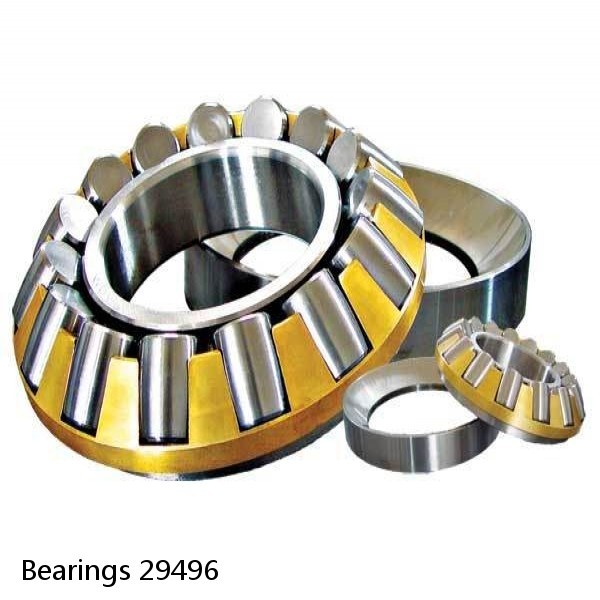 Bearings 29496
Bearings 29496 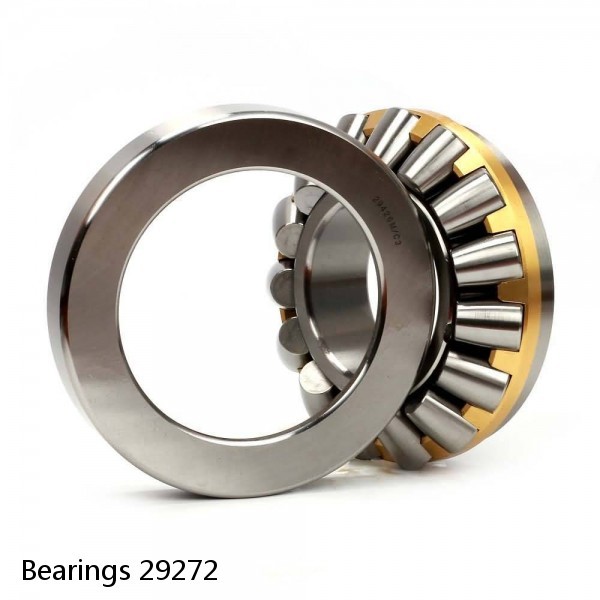 Bearings 29272
Bearings 29272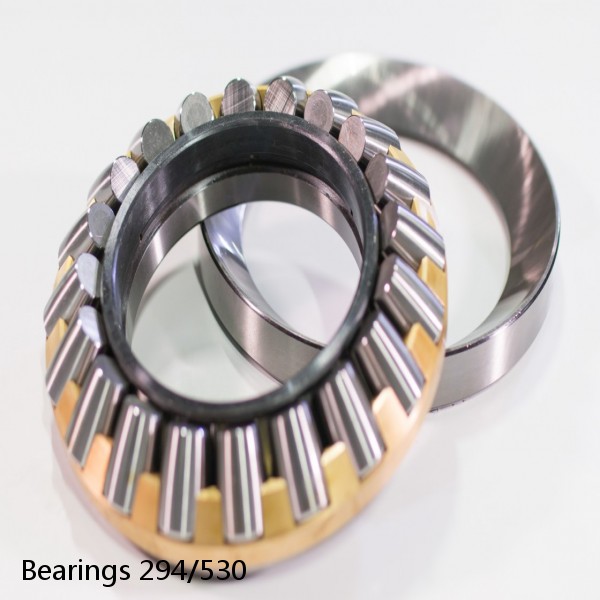 Bearings 294/530
Bearings 294/530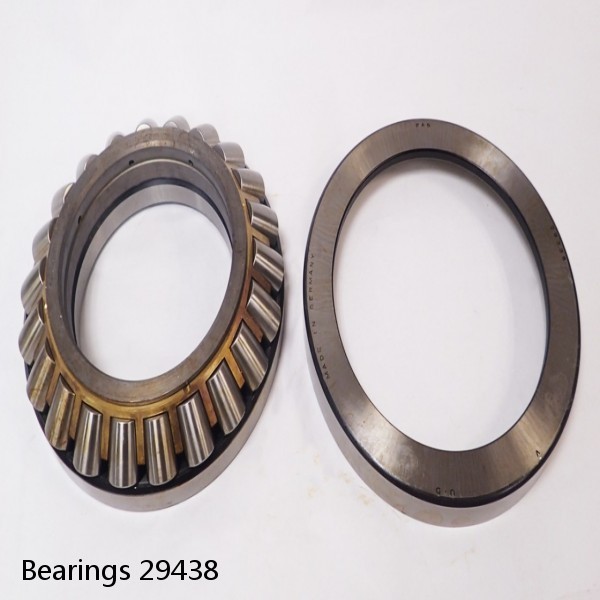 Bearings 29438
Bearings 29438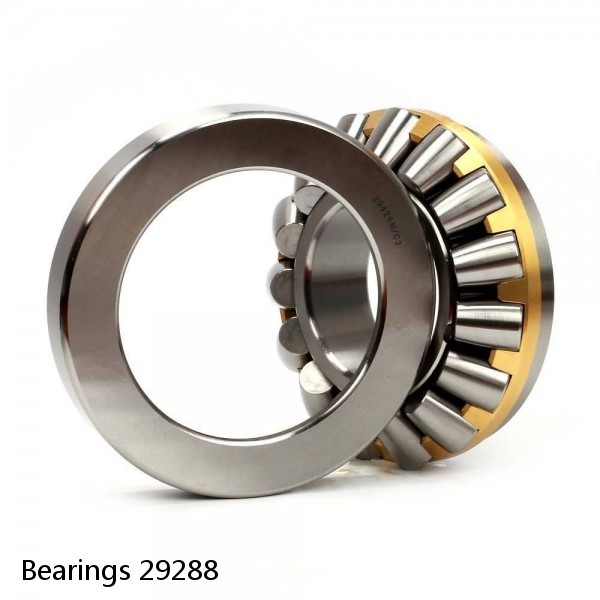 Bearings 29288
Bearings 29288